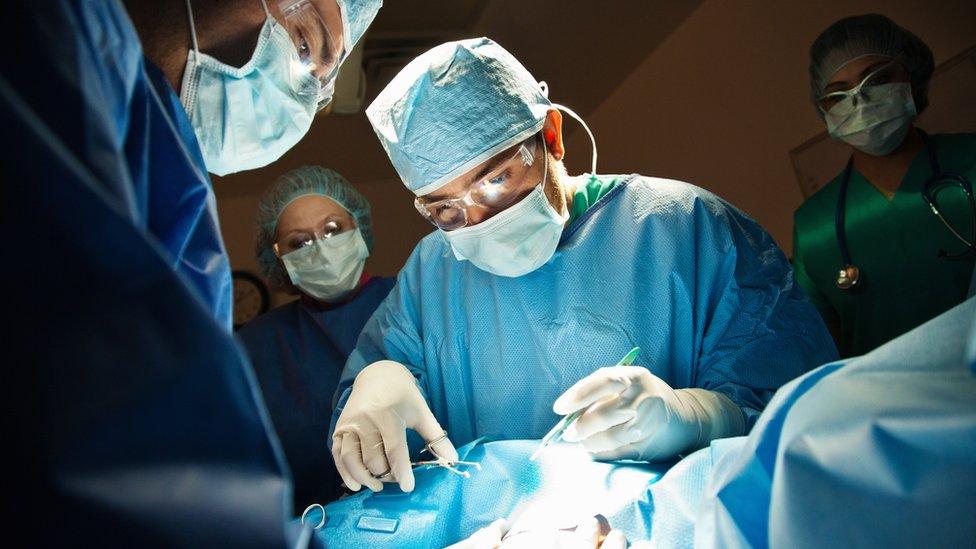The baby who was 'repaired' in the womb
- Published
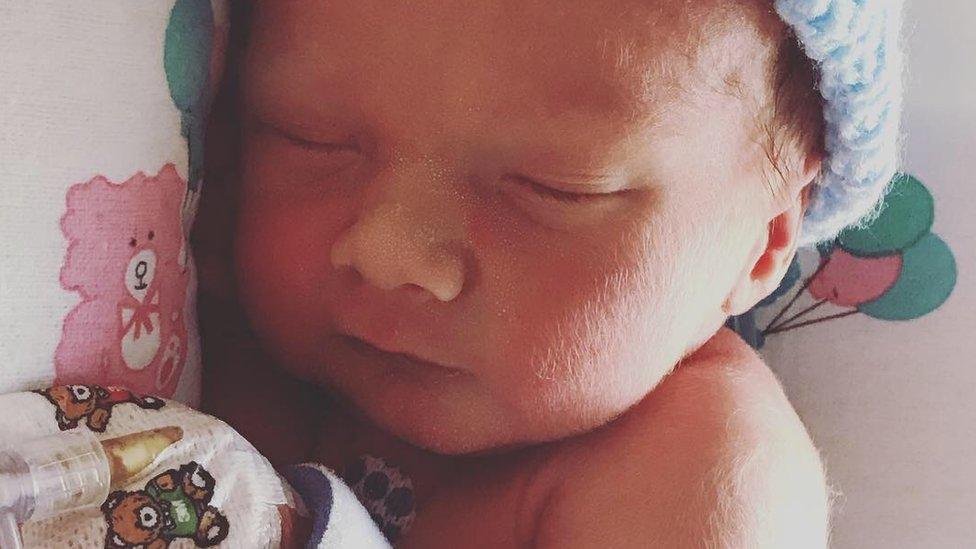
Signs are positive that the surgery was successful and baby Augustine will be able to walk
A Dundee mother has described how pioneering surgery changed the course of her baby's life before he was born.
Augustine Somers was diagnosed with spina bifida at 22 weeks following a routine scan.
His mother Amanda faced a race against time to find a surgeon who could repair the damage before the 26-week deadline for foetal surgery.
After the surgery and a premature birth, tests suggest he has a good chance of being able to walk.
Spina bifida is a condition where the spinal cord fails to develop properly and has a gap in it.
It is usually treated after birth, but the earlier it is repaired the better the prospects for long-term health and mobility.
Amanda and her husband Benjamin Somers found out about the new procedure through their own research.
The foetal spinal surgery has only just become available in the UK, with the first two operations taking place in London in October.
They were told they could not be accommodated at University College Hospital but they were put in touch with Prof Jan Deprest in the Belgian city of Leuven - the man who had pioneered the surgery and trained the UK surgeons.
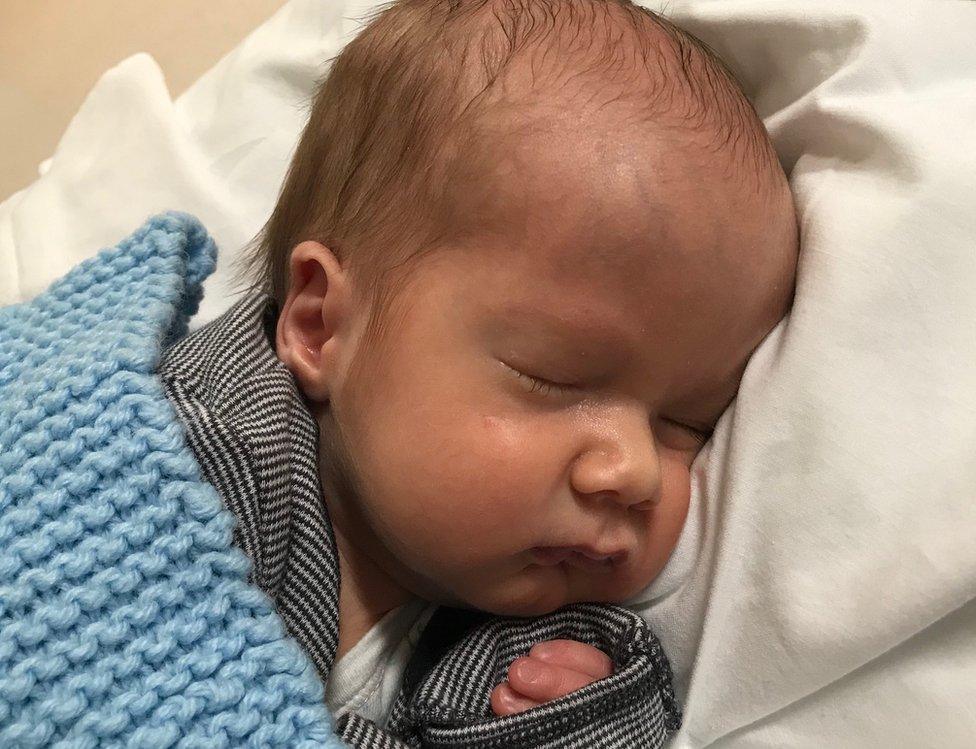
Miracle baby Augustine Somers received vital surgery before he was born
After establishing that Amanda and the baby both met the criteria for the surgery, Amanda flew to Leuven within days of the deadline.
At the end of October, Augustine became the first baby from Scotland to have the operation.
Amanda, 32, told BBC Scotland's Kaye Adams Programme: "We really just had about two weeks to get everything together.
"We had surgery on 30 October. I was on strict bed rest for the next seven weeks and he was born on 18 December.
"He is now one month old, still in hospital, but doing really well."
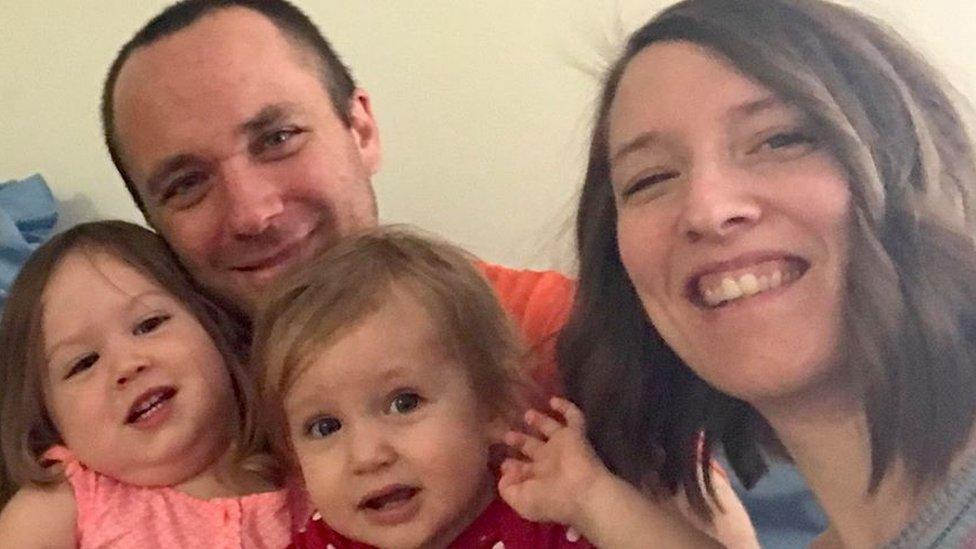
Benjamin and Amanda already had two girls, Clementine and Isabel
During the four-hour surgery, doctors cut an opening in the womb and then closed the baby's gap in the spine.
The procedure is risky and can cause premature labour.
Amanda, a post-graduate philosophy student at St Andrews University, said: "My placenta was in the front.
"So they had to lift the womb out so they didn't hurt the placenta while they were in there.
"They used a solution to 'float' the baby to the top of the womb so that only the back was exposed. He was still in the amniotic fluid when they closed three layers - the spinal layer, dural sheath then skin to close up."
Amanda's waters broke just under 33 weeks into her pregnancy, and Augustine was born by caesarean section the following day.
She said: "He was a pretty big baby 5lb 5oz, a good weight for being early."
A month on, Augustine weighs 6lb and his parents are looking forward to getting him home from the Queen Elizabeth University Hospital in Glasgow in the next week.
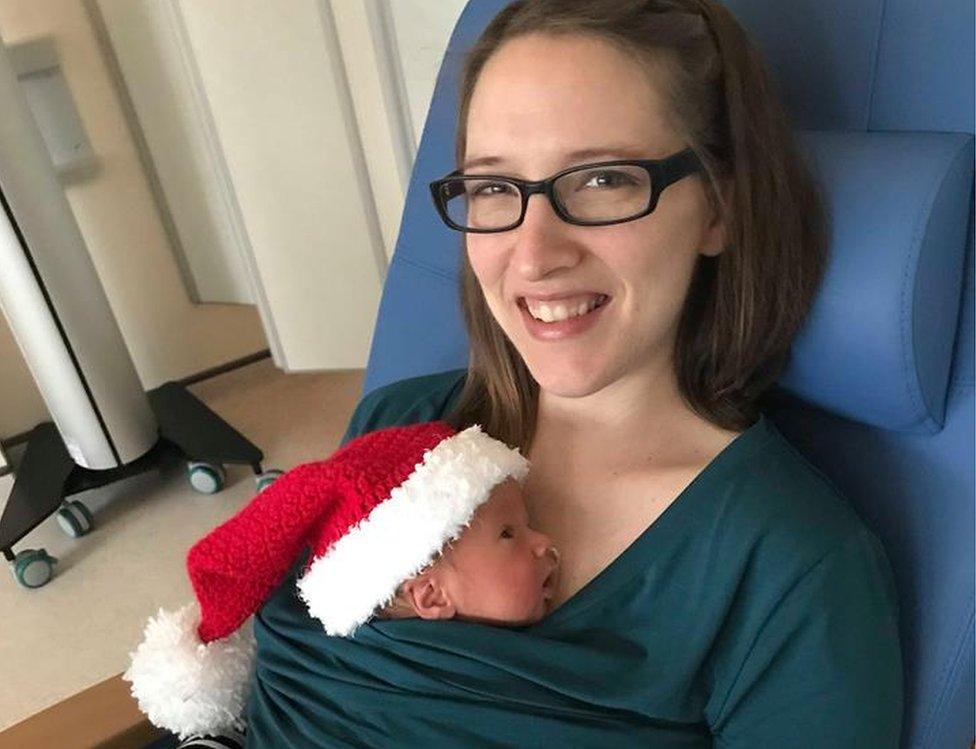
Augustine has been in hospital since he was born in December, but Amanda is looking forward to getting him home in the next few weeks
The infant, who also suffers from hydrocephalus, had some fluid removed from his brain, but he is doing well.
Amanda said: "The hydrocephalus is hopefully in a good place.
'Absolutely groundbreaking'
"His leg movements and reflexes are outstanding and they are really optimistic he will be able to bear weight on his own.
"Walking independently is what we are after and we are really hopeful for that."
Andy Wynd from Spina Bifida Hydrocephalus Scotland said the procedure was a game-changer for people who meet the criteria for the procedure.
He said: "The surgery is absolutely groundbreaking.
"There are risks to be considered but the ultimate outcome is that the impact of spina bifida, and hydrocephalus is reduced.
"The research so far is very positive and in relation to movement, there is a far better outcome with in-utero surgery than waiting until the baby is born."
He said around three to four babies in Scotland each year could be eligible for the surgery.
- Published22 December 2018
